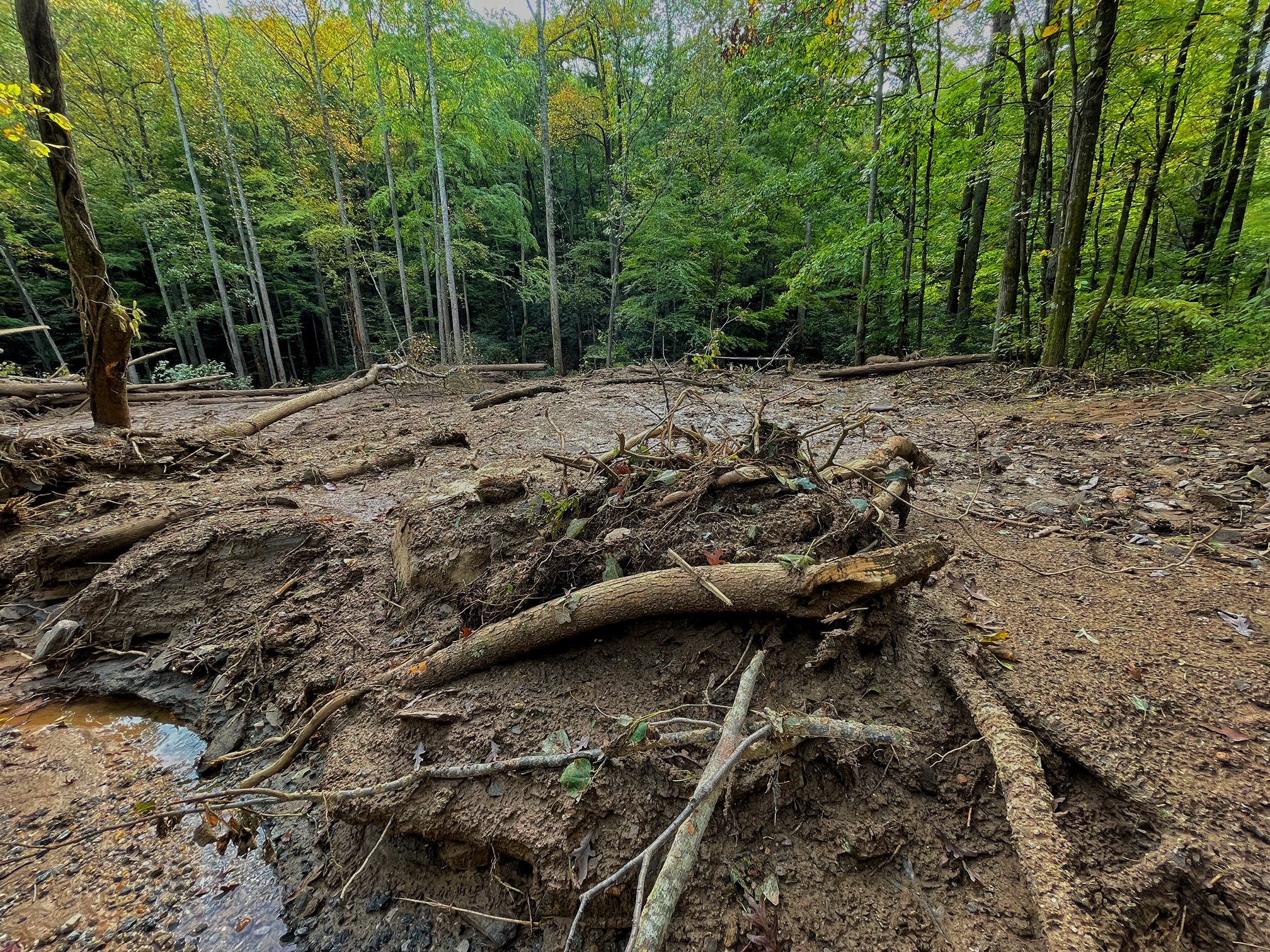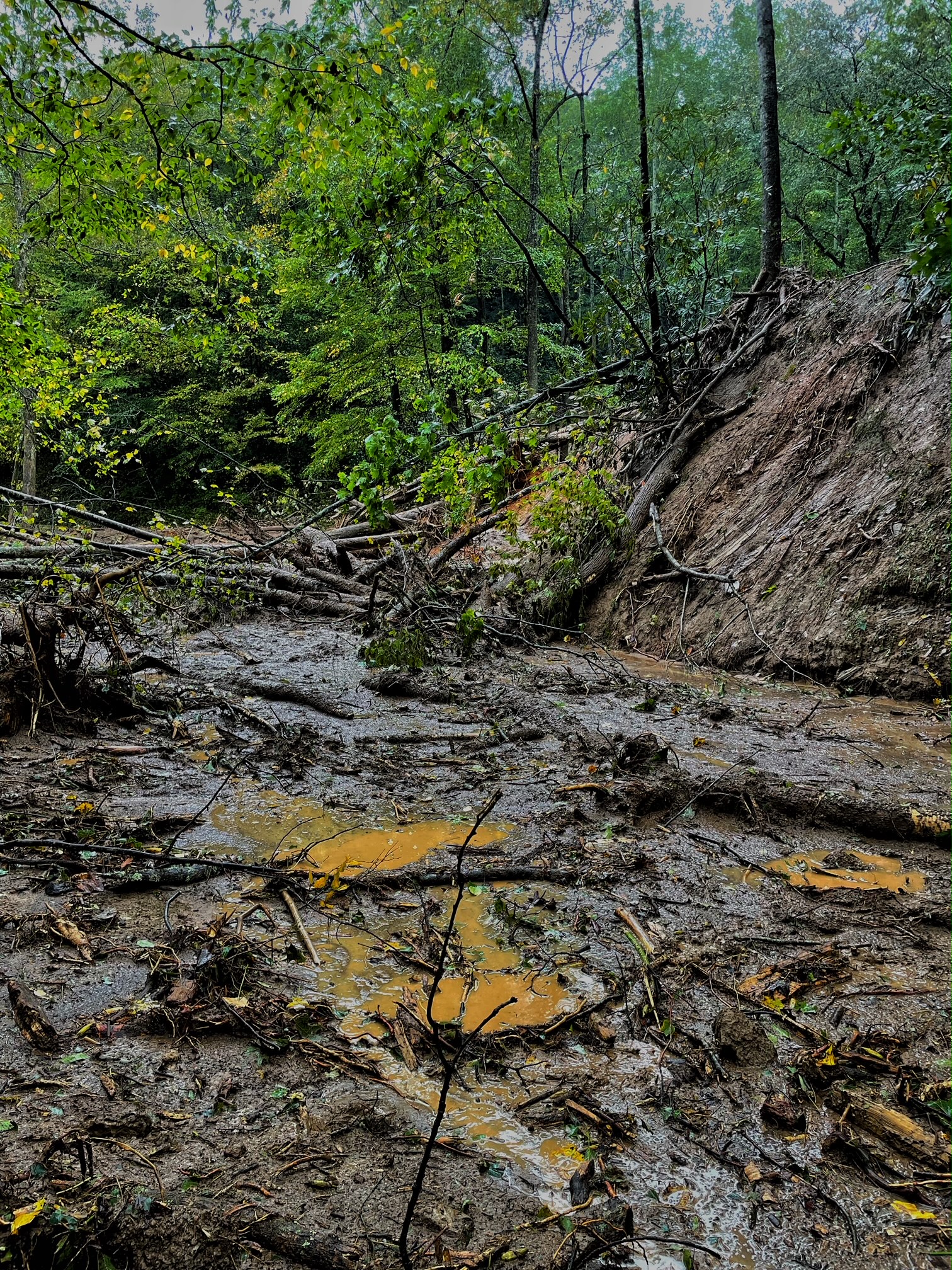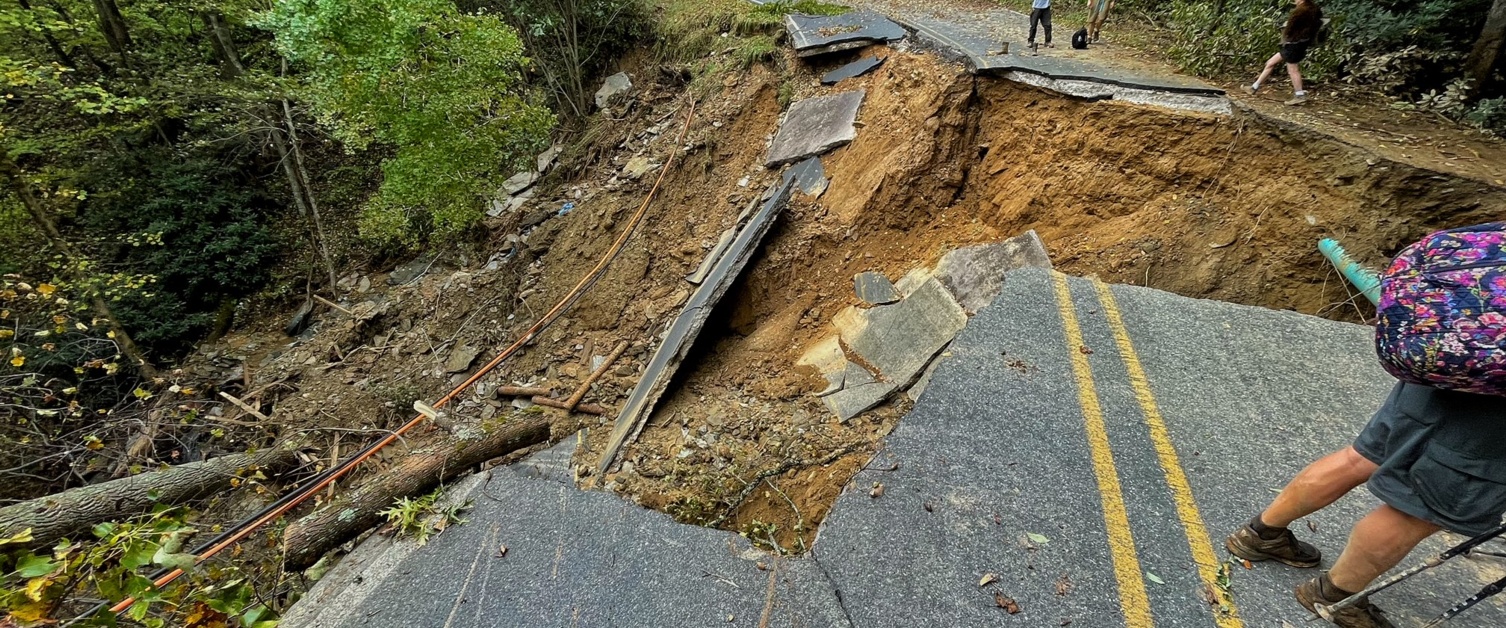Our Evacuation from the Mountains of North Carolina after Hurricane Helene
- Nov 8, 2024
- Weather Band Content, Hurricanes, Severe Weather, Solo
- Rod Scott
We stood at the window in horror as the eighty-foot-tall tulip poplar, uprooted by the landslide, slid into the gorge and fell across the face of the dam. It was the second landslide we had witnessed that morning.

This is a small part of the road we used to evacuate from the B&B.
We were among six guests (three couples) at a Bed and Breakfast surrounded by the Pisgah National Forest who were sheltering in place because the road above and below the inn was impassable. Ten inches of rain had fallen in the two days before Helene came to impact the local mountains, which had brought down trees and power lines, triggered landslides, and washed out the bridge on the road below us.

A major landslide we had to slog through to hike out from the B&B
The loss of power (and water from the well) created its own problems, but the innkeepers were resilient and prepared. Once the rains slowed down, the generator was set up and gasoline was inventoried. To conserve gasoline it was decided to run the generator three times a day for just one hour so that water would be available. This also provided lights in the kitchen where food could be cooked on a gas stove.
Fortunately the inn had installed a Starlink internet system the year before and with a battery block powering the system we had internet capability. It was a unique experience to be trapped in the mountains with hours of internet capability each day! One couple had arrived in a Hybrid Highlander, and they set the car up to run in “generator mode.” This allowed the car to power one refrigerator 24/7. When the hybrid battery became partially depleted, the car would start and run to recharge the battery and then shut itself off. Connecting a power strip to the extension cord from the car allowed us to recharge cell phones and tablets. Careful computations suggested we could keep the refrigerator cold for seven to nine days using this setup.
We were far more fortunate than many others in the mountains. We had a roof over our heads, water, generator power, and we had communications. We used our internet connection to reach out to family and begin to make plans for our evacuation.
After five more inches of rain had fallen on Saturday, we rejoiced as Sunday dawned with blue skies and white cumulus clouds. It was the first sunshine we’d seen since Tuesday. On this day, one of the guests reconnoitered the local routes out of the area. He was gone for five or six hours and came back exhausted, but his information was invaluable. Regardless of the road damage that he found, he stated that evacuation was possible.
.jpeg)
A major washout on the asphalted part of the road we used to evacuate from the B&B.
On Sunday we made plans to hike out via the road on Tuesday and communicated that information to family and friends. When Tuesday dawned, we ate breakfast, and the six of us hugged the innkeepers and thanked them profusely for taking such good care of us. We left our cars, keys, and possessions (including clothing) behind and started hiking out with the clothes on our backs, water bottles, and snacks.
I’ve been hiking and backpacking in the woods for my entire life, but this was the most difficult hike I’d ever attempted. The first landslide almost stopped us as we climbed over downed trees and negotiated mud that was more than two feet deep. It took us over an hour to make it 300 feet. After a rest we proceeded the rest of the way up the mountain, slogging through mud and crawling over downed trees.
.jpeg)
A wooded stretch that became a river alongside the road. The water from this river overtopped the dam at the BnB, undercut the spillway and caused at least one landslide.
In spite of the obstacles and after three and a half hours we completed the two-and-a-half-mile hike, and were greeted and embraced by family. We were evacuated on October 1, five days after Hurricane Helene’s landfall.
